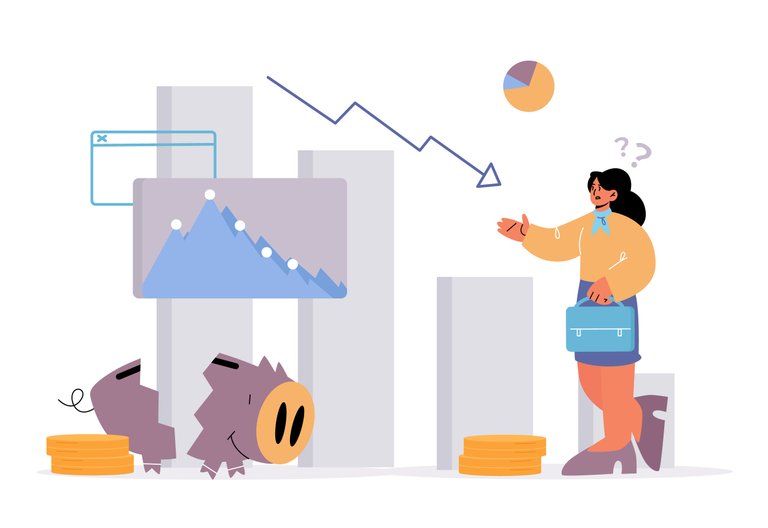What will be lost?
This will be a ‘part A’ of this entire article. The idea is to first create this needed awareness concerning the future flaws of digitization before Moving further to seek remedies. I once said, we are moving into an era where ALL eggs are in one basket and this calls for more attention to evade losses
Maybe we should start with what has been lost already. A friend told me there is a price mark Bitcoin can never go beyond even if every holder were to dump the asset. He had a point there; his emphasis was on how much Bitcoin has been indirectly burned. loss of wallet keys, mistaken transactions and so on. We can attest that the early phase of this tech was full of such drama. Show where are all those coins now? Stored in oblivion.
I have discussed the rise of virtuality in this era. Digitalization is taking the lead and many are flocking into it. We have to look at the pending advantage; flexibility in asset control. I have also talked about how this in the process will need a high online or digital security level to maintain. Of course, fraudsters and hackers will be out for bounties. security has become a way of online life. Anyway, we will also need to look at these digital rise flaws that should be addressed early.

source
Take for instance, you put a password or fingerprint on your phone. You lock your Facebook, WhatsApp account. The same goes with our emails, even your Hive wallet is made up of unsharable security keys. Does this have any disadvantage. Maybe I should start with this little experience I had with my brother back then. We used one of his phone contacts to create a wallet to store some coins. He later lost that phone number and didn't retrieve it on time and that number was blocked.
It was both linked to his email for verifications. That was where the problem started. Anytime we were about to withdraw it would require an OTP which was sent to that mail. How to access that mail was a problem (an OTP will be sent to the phone number to verify the e-mail account). We lost what we had inside that wallet (nothing much anyway since we were pushing dust coins back in the days, what did we know). We lost assets we knew something about.
I think the future will be worse, people will be loosing assets they know nothing about. How many people can access your phone or your PC? It is likely to be you and just you. What then will happen if a tragic event took place? Let's say for instance, Mr. A had $20,0000 dollars worth of assets in different investment platforms and suddenly died. How do you retrieve these assets when he had password-protected his mobile phone, PC, emails and every other related account? How do you even know where and where his assets are stored in the first place?

source
Should this be a concern? Of course. I have heard of such rumors where someone died and left his money in accounts that were unknown to his relatives. Who are the ones enjoying the money? Of course the banks; they could just leave digits as figures on his account, the real money has gone into their daily investment for ROI. This matter will worsen in the future if there is no easy way to curb this.
We are looking at a future where fortune will be Frozen or perhaps capitalized on by those who know it has become a ‘no way to be found’ for the other side of The Party. Yes, the issue of trust carries its own risk, share your passwords and account details with someone close and you might be surprised to see your holdings drained off one day. We have seen this happen in families, husband quarrelling with wife because finance was accessed and tempered with.
To conclude, let me add, I will be bringing my way forward in the Next article. It will take another phase of technology to battle this pending doom. We have entered the era of digital assets and there is no going back. Much transactions; buying and selling are NOW done in the online markets. Many have in the process created individual houses for themselves both in web3 and web2 ecosystems. The difference here is that while a physical house can easily be accessed by strangers ( this could be relatives) in times of Crisis, the virtual space is the reverse. What cannot be accessed is lost.
Posted Using INLEO
